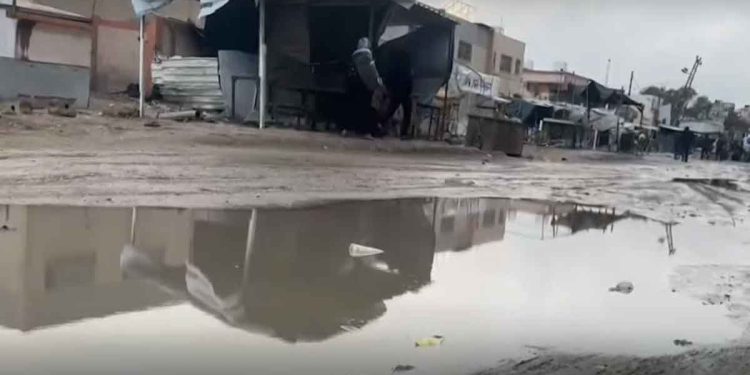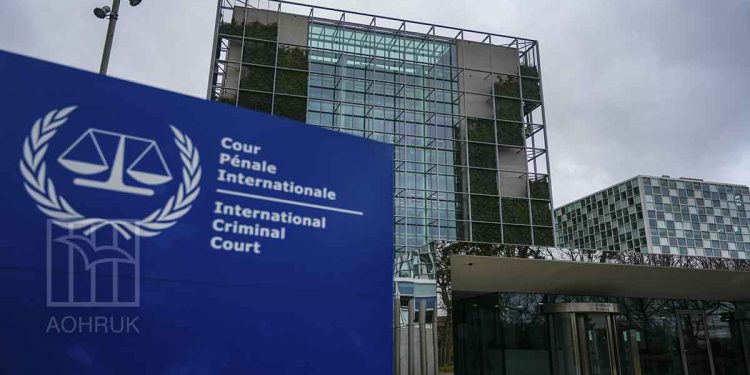The humanitarian situation for the displaced people who had to flee their homes because of the widespread bombing and destruction is getting worse as Israel’s siege and aggression on the Gaza Strip continue.
Thousands of families were forced to sleep outside in the bitter cold in Rafah and Mawasi Khan Yunis in the southern Gaza Strip as hundreds of tents flooded and others were blown away by strong winds and heavy rains due to the lack of practical solutions to shelter the displaced.
The lack of a sufficient humanitarian response made this disaster worse by failing to take significant action to protect the displaced or offer them safe alternatives, leaving them vulnerable to inclement weather in addition to their continued suffering from a shortage of food, drinking water, and medical care.
After being forced to live in tents made of nylon and thin cloth—materials that do not offer the bare minimum of protection in the face of intense rains and storms—the displaced are in appalling conditions after losing their homes due to the ongoing Israeli war.
Hundreds of these tents have collapsed due to the recent storm, leaving thousands of families homeless outside and putting the health of children, the elderly, and the sick at greater risk.
Along with the acute lack of food supplies and heating options due to fuel shortages, residents of the northern Gaza Strip, where some of the displaced have returned to their destroyed homes, face significant difficulties setting up tents once more during the stormy weather.
International humanitarian law, which requires the occupation to protect civilians and meet their basic needs during times of conflict, is blatantly broken by the suffering of the displaced in Gaza.
The humanitarian situation is made worse by the Israeli occupation, which has not only destroyed civilians’ homes but also maintained a tight siege that forbids the entry of essential supplies needed for their relief.
According to international law, the blockade and forced relocation policies are war crimes since they deprive the locals of the bare necessities of life and subject them to cruel circumstances that endanger their lives and health. The humanitarian situation in Gaza is getting worse every day as a result of the ongoing conflict and blockade, and the international community is doing little to protect the people of Gaza.
The international community must act swiftly to save the displaced by putting pressure on the occupation to lift its unfair siege and permit the entry of critical supplies of food, medicine, shelter, and heating. It must also hold the occupation responsible for its continued violations and guarantee that civilians are protected in compliance with international agreements and laws.
As the weather storm continues and more storms are predicted in the days ahead, the question still stands: How long will the world keep quiet about the humanitarian catastrophe that the people of Gaza are going through?


























